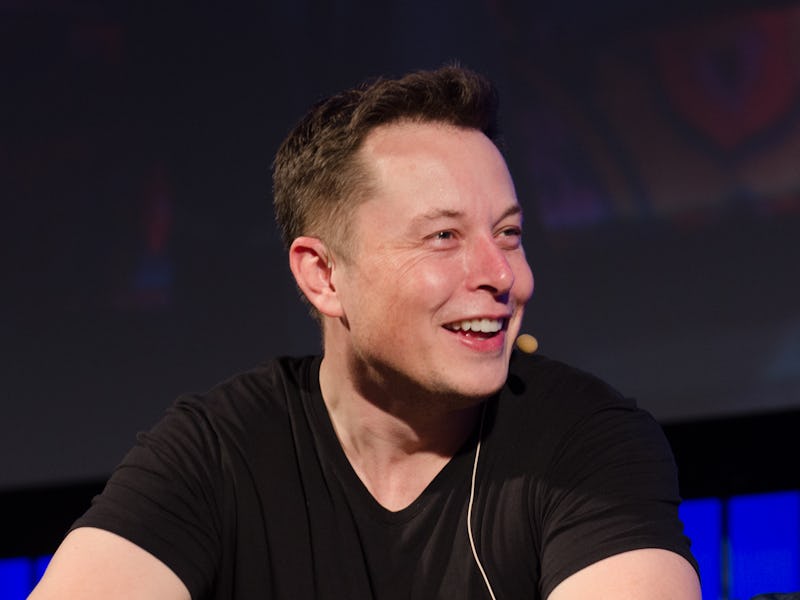Elon Musk Wants to Cover The World in Darkness -- I Mean, the Internet
About 4,000 satellites should do the trick, yeah?

Hot off his crazy declaration that he wants to nuke the shit out of Mars, crazy billionaire Elon Musk has doubled down on his quest for internet in space. Musk officially moved forward with his previously announced plans and asked the FCC permission to allow SpaceX to launch over 4,000 satellites into space to provide Wifi for earthlings.
Satellite internet is not a new technology — although I admittedly know no one that actually gets their interweb through a hunk of metal floating in Earth’s orbit. Still satellites have been increasingly touted for their potential to deliver internet access to remote regions of the world that aren’t well connected to major infrastructure. About 4.4 billion people in the world still don’t have regular internet access.
SpaceX is proposing launching those satellites in orbit at a little over 400 miles above the surface of the Earth. This is to reduce the lag time between connections running to and from space, but this also means that, with satellites moving around at lower speeds, many more are needed to cover the Earth with wifi — hence the proposal for 4,000 of them.
Obviously this is a helluva lot easier said than done. Launching a satellite into space is expensive business, and while SpaceX is trying to make that a much cheaper process, it’s still running into some issues, to say the least (cough explosions cough). Still, Musk has been vocal about pushing this endeavor forward, be it for philanthropic reasons or for global domination purposes.
He has some competition coming from Greg Wyler and OneNet, who are backed by The Virgin Group and Qualcomm. Wyler wants to beat Musk to space, and already owns a significant amount of licensing to supply internet to many places around the world.
Of course, Musk’s real goal may actually be to lay the groundwork for delivering internet to Mars’ first human colony. If that’s the case, he’s in the lead — perhaps not least because no one is eager to settle down on Musk’s post-nuclear red planet hellhole.